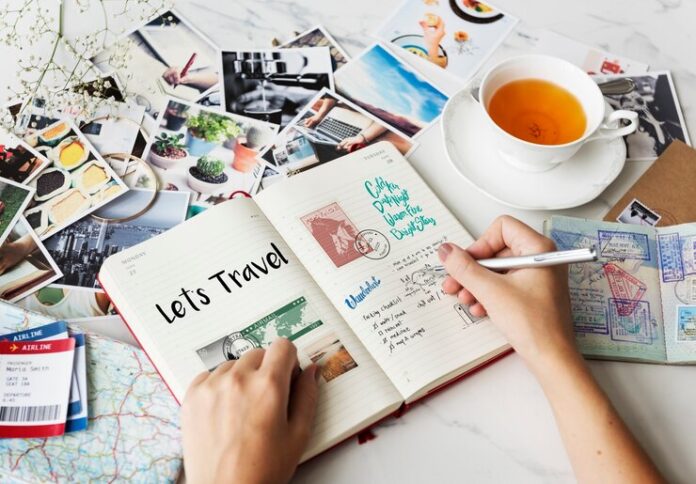Traveling is more than just visiting new places and taking pictures for social media. It’s a transformative experience that shapes your perspective, teaches life lessons, and leaves you with stories to cherish forever. While the allure of traveling lies in its promise of adventure, the true magic is in the lessons it teaches along the way.
In this guide, we’ll explore the four profound lessons you’ll never forget during your journey. Whether you’re a seasoned traveler or embarking on your first adventure, these lessons will resonate with your experiences and inspire you to travel more mindfully.
Lesson 1: The Beauty of Embracing Uncertainty
Traveling often comes with unpredictability. Despite meticulous planning, flights can get delayed, accommodations may not meet expectations, and weather conditions can derail your itinerary. Yet, it’s in these moments of uncertainty that some of the most memorable experiences occur.
Adapting to the Unexpected
One of the greatest lessons from traveling is learning to adapt to unexpected situations. Imagine arriving at your dream destination only to find the main attraction closed for renovation. Instead of disappointment, use the opportunity to explore lesser-known spots, interact with locals, or try something new.
Tips to Embrace Uncertainty:
- Always have a backup plan for key aspects of your trip.
- Stay calm and focus on what you can control.
- Consider setbacks as part of the adventure.
Serendipitous Moments
Some of the best travel stories are born from unplanned moments. A missed train might lead to a conversation with a local who shares hidden gems about the area. A wrong turn can unveil a breathtaking view you never anticipated. These moments teach you to appreciate the journey rather than obsess over the destination.
Lesson 2: The Importance of Cultural Sensitivity

Every destination has its unique culture, traditions, and way of life. Traveling is an opportunity to step out of your comfort zone and immerse yourself in new customs, but it also comes with the responsibility of being a respectful visitor.
Learning Local Etiquette
Understanding and respecting local customs is crucial. In some countries, it’s customary to remove your shoes before entering someone’s home, while in others, tipping might be considered offensive. Being mindful of these practices ensures a positive interaction with the locals.
Practical Steps:
- Research the cultural norms and practices of your destination beforehand.
- Observe how locals behave in public spaces and follow suit.
- Learn a few key phrases in the local language, such as “thank you” and “please.”
Challenging Stereotypes
Traveling exposes you to diverse perspectives and challenges preconceived notions about people and places. It teaches you that the world is far more nuanced than stereotypes and encourages empathy and open-mindedness.
Lesson 3: The Value of Minimalism
Traveling often requires you to live out of a suitcase, teaching you the art of minimalism. You quickly realize that you don’t need a closet full of clothes or countless gadgets to have a fulfilling experience.
Packing Smart
Learning to pack efficiently is a skill that stays with you even outside of travel. It helps you prioritize essentials and eliminate the unnecessary. For instance, instead of packing multiple outfits, focus on versatile clothing pieces that can be mixed and matched.
Packing Tips:
- Use packing cubes to organize your belongings.
- Invest in multi-purpose items like a scarf that can double as a blanket.
- Stick to travel-sized toiletries to save space.
Appreciating Experiences Over Possessions
When you travel, the memories you make, the people you meet, and the sights you see far outweigh the importance of material possessions. This shift in mindset encourages a more experience-driven lifestyle.
Lesson 4: The Power of Connection
One of the most enriching aspects of traveling is the opportunity to connect—with nature, history, and, most importantly, people.
Bonding with Locals
Interacting with locals can offer insights into a place that no guidebook can. From learning about their daily lives to sharing meals together, these connections often become the highlight of your journey.
Ways to Connect:
- Participate in local events or festivals.
- Opt for homestays instead of hotels.
- Join guided tours led by locals for an authentic perspective.
Forming Lifelong Friendships
Traveling often brings together like-minded individuals, and the shared experiences can form the basis of lifelong friendships. Whether it’s a fellow traveler you met on a trek or someone who helped you navigate a foreign city, these connections add a personal touch to your journey.
Practical Travel Tips for a Memorable Journey
1. Plan, but Stay Flexible
While it’s important to have a rough itinerary, leave room for spontaneity. Overplanning can make the experience feel rigid, whereas flexibility allows for unexpected adventures.
2. Prioritize Safety
- Always keep digital and physical copies of important documents like your passport and ID.
- Share your travel plans with someone you trust.
- Stay aware of your surroundings, especially in unfamiliar areas.
3. Budget Wisely
Set a realistic budget and stick to it. Use travel apps to find deals on flights and accommodations, and track your spending throughout the trip.
4. Respect Nature and Heritage
Avoid littering, follow designated trails, and respect heritage sites. Responsible tourism ensures that future generations can also enjoy these places.
Conclusion
Traveling is a journey of self-discovery, learning, and growth. The lessons you learn along the way—embracing uncertainty, appreciating cultural diversity, valuing minimalism, and building meaningful connections—stay with you for a lifetime. These experiences shape your perspective, enrich your life, and inspire you to become a more mindful and empathetic individual.
So pack your bags, step out of your comfort zone, and embark on a journey that will not only take you to new places but also transform the way you see the world.
FAQs
1. What’s the best way to prepare for a trip?
Research your destination thoroughly, plan your itinerary, and pack smart. Always ensure your documents, such as passports and visas, are in order, and consider purchasing travel insurance for added safety.
2. How can I stay within budget while traveling?
To stay within budget, plan your expenses beforehand, prioritize free or low-cost activities, and use apps to find deals on accommodations and transportation. Cooking some meals instead of eating out can also save money.
3. How do I handle language barriers while traveling?
Learn basic phrases in the local language, use translation apps, and carry a pocket dictionary. Gestures and visual aids can also help convey your message.
4. How can I make meaningful connections with locals?
Be respectful, show genuine interest in their culture, and participate in local events. Staying in smaller, locally owned accommodations can also facilitate interactions with locals.
5. What should I do if I encounter an emergency while traveling?
Contact local authorities or your country’s embassy for assistance. Always have a list of emergency contacts, including your accommodation, travel insurance provider, and a trusted friend or family member.
6. How can I minimize environmental impact while traveling?
Practice eco-friendly habits such as reducing waste, avoiding single-use plastics, and supporting sustainable tourism initiatives. Choose accommodations and tours that prioritize environmental conservation.
7. Is it better to travel solo or with a group?
Both have their advantages. Solo travel allows for personal growth and freedom, while group travel can be more cost-effective and provide shared experiences. Choose based on your preferences and comfort level.
8. What are the benefits of keeping a travel journal?
A travel journal helps you document your experiences, emotions, and lessons learned. It serves as a cherished keepsake and can provide valuable insights when you revisit your entries.
9. How do I stay healthy while traveling?
Stay hydrated, eat balanced meals, and prioritize sleep. Carry a basic first-aid kit and any necessary medications. If you’re traveling internationally, check if vaccines are recommended for your destination.
10. What’s the best way to overcome travel anxiety?
Prepare thoroughly, stay organized, and focus on the positive aspects of the journey. Meditation, breathing exercises, and seeking support from fellow travelers can also help ease anxiety.


